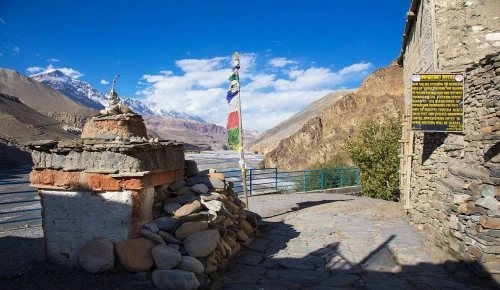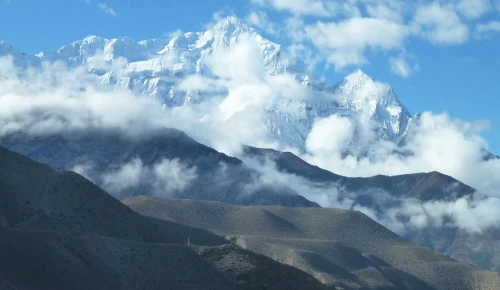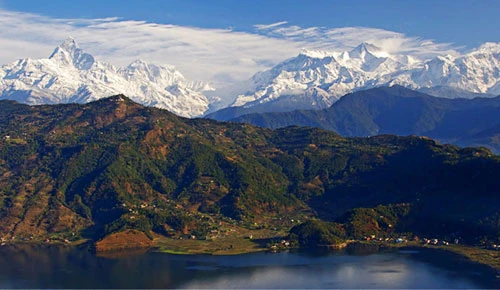Where is Mount Everest Located?
The highest mountain beyond the earth is Mount Everest, which is 8848.86 meters high above sea level. This beautiful mountain invites people from across the globe to come and climb, trek, or adventure. Actually, it is part of the Himalayas and shares borders with Nepal and China's Tibet Autonomous Region.
But there is a bigger story at the base of Mount Everest. It holds a special place in geography and culture. From a geographical standpoint, it is the highest point on Planet Earth so it is certainly an important landmark for any cartographer or mountain climber. Like other high peaks in the area, Mount Everest has long been a favorite among the locals which also involves difficulties.

Mount Everest, like other high peaks in the region, is long adored by the locals. The most common Tibetan name, Chomolungma, translates as "Goddess Mother of the World" or "Goddess of the Valley." The Sanskrit name Sagarmatha literally means "Peak of Heaven."
Its status as the highest point on Earth's surface was not recognized until 1852, when the Government of India confirmed it. The mountain, which had previously been known as Peak XV, was renamed in 1865 after Sir George Everest, the British surveyor general of India from 1830–1843. According to etymology sources, the mountain's Western name is sometimes mispronounced "Ever-est" or "Ev-rest," despite the fact that Sir George Everest's surname is "Eve-rest.
Table of Contents
Geographical Locationmap.
Everest is located at a specific location on our planet's surface. With an approximate latitude of 27.9881° N and a longitude of roughly 86.9250 ° E, it is located in the center of Nepal. Mount
Everest is located in the southeast of Asia on the world map. It is located in the Tibet Autonomous Region, which borders both Nepal and China. According to an Asia map, Mount Everest is located in the massive Himalayas, which span many states.

Himalaya is the mountain range abode of Mount Everest and it's ongoing or old news that it millennia old. The tallest mountains in the world, such as Mount Everest, are part of this range, which is also known for its high peaks.
About 50 million years ago, the Himalayas formed when India plowed into Asia and they are still slowly growing. It is one of the most beautiful views in America, and it also provides water for a vast proportion of Americans as well as a place for many plants and animals to hide.
Understanding Mount Everest’s Faces and Summit Conditions
Mount Everest resembles a three-sided pyramid. The pyramid's flat sides are known as faces, and the ridge generated by two faces coming together is known as a "ridge."

- North Face: West Ridge and North Ridge encircle this side, which is in Tibet and connects to Northeast Ridge. Some significant features include Great Couloir, Hornbein Couloir, and North Col, which are located at the base of North Ridge.
- Southwest Face: This face lies within Nepal, bordered by West Ridge towards the southwest and Southeast Ridge to the southeast. Some remarkable features include South Col, located at the base of the southeast ridge, as well as Khumbu Icefall, an area full of imposing blocks of ice that makes it really tough to navigate.
- East Face (Kangshung Face): It’s situated in Tibet between two ridges, the Southeast Ridge going southeastwards as well as the Northeast Ridge moving northeastwards.
Everest's summit is blanketed with hard-packed snow overlaid with softer snow. Every year, the snow reaches varying heights of 5 to 20 feet, with September being the highest due to precipitation, and May being the lowest due to fast air currents. Because of its high altitude, the quality of oxygen at the top is so great that even today, its level fluctuates between one-third that of sea level. The featureless cold, shortage of breathing gas, and turbulent airflow make any vegetation or living organisms in that area impossible.
Different Trekking Packages to Reach Mouny Everest and its Base Camp
The best part is that Nepal has a range of trekking packages based on different taste buds and experience levels. VIA FERRATA: route and itinerary; classic paths or uncrowded ones for everyone. For all kinds of trekkers, these are day- to month-long hikes.
- Everest Base Camp Helicopter Tour
- Everest Base Camp Trek - 14 Days
- Everest View Helicopter Tour with Kalapatthar Landing
- Gokyo Valley Trek with Helicopter Return - 8 days
- Everest Base Camp Trek with Helicopter Return
- Everest Base Camp Luxury Trek - 12 Days
- Everest Base Camp Trek 5 Days
- Everest Base Camp Trek by Road - 16 Days
- Jiri to Everest Base Camp Trekking
- Everest Three Passes Trek
- Everest View Trek - 8 Days
- Short Everest Base Camp Trek - 7 Days
- Everest Circuit Trekking - 17 Days
- Gokyo Lake Trek - 11 Days
- Gokyo Chola Pass Trekking via EBC - 14 Days
- Mount Everest Expedition
Conclusion
Known as the tallest mountain in the world, it also serves to remind us of our spirits and abilities. At the heart of Himalayas it is located between Nepal and Tibet Autonomous Region of China. Kathmandu Streets to Lhasa landscapes on the way up provide an various mix of cultural experiences and aha moments.

With fantastic places, both natural and in terms of activities (trekking or mountaineering), spread across all over the world; Measure Everest location can be an obscure piece of information unless you are someone who is always looking to know more about the peak.
And while Everest continues to call out as a place we wish to visit or dream about, this mountain will remain more than just an iconic geographic landmark - but one that stands for the best in our human spirit: of exploration and appreciation nature.








